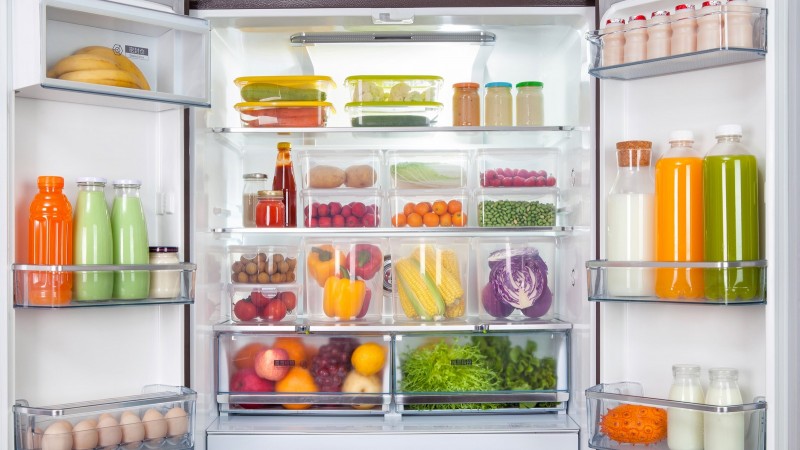
When it comes to storing food, many of us unknowingly make mistakes that could have detrimental effects on our health. Let's delve into the common errors people make when storing items in the fridge and how these missteps can impact the safety of the food we consume.
One common oversight is neglecting the designated temperature zones in your refrigerator. Different sections are meant for various types of food, and understanding these zones is crucial to maintaining freshness and preventing bacterial growth.
Overcrowded shelves may seem like a minor inconvenience, but it can lead to uneven cooling. Proper air circulation is essential to keep food at the right temperature and prevent the growth of harmful bacteria.
Inadequately sealed containers allow air to seep in, promoting the growth of bacteria and accelerating food spoilage. Investing in airtight containers can make a significant difference in preserving the quality of your stored items.
Applying the FIFO principle ensures that you use older items first, reducing the risk of food going bad before it's consumed. Neglecting this principle can lead to wastage and compromised food safety.
A dirty refrigerator not only affects the taste of your food but also poses health risks. Regularly clean and sanitize your fridge, paying attention to spills and residues that can harbor harmful microorganisms.
Placing hot food directly into the refrigerator can raise its overall temperature, jeopardizing the safety of other items stored inside. Allow hot dishes to cool to room temperature before refrigerating.
One of the most crucial aspects of food safety is keeping track of expiration dates. Consuming expired items can lead to foodborne illnesses. Regularly check dates and discard anything past its prime.
Raw meat should be stored on the bottom shelf to prevent juices from dripping onto other foods. Cross-contamination is a significant concern that can lead to severe health issues.
While freezing extends the shelf life of many foods, not everything thrives in sub-zero temperatures. Certain items can undergo texture and flavor changes when frozen, so it's crucial to know what to freeze and what to keep in the fridge.
Contrary to popular belief, storing bread in the fridge can actually accelerate staling. Keep bread at room temperature or freeze it to maintain its freshness and texture.
Certain fruits and vegetables release ethylene gas, which can speed up the ripening process of nearby produce. Store ethylene-producing items away from others to prevent premature spoilage.
The fridge door experiences temperature fluctuations, making it an unsuitable spot for delicate items like eggs. Store eggs on the shelves to ensure a consistent temperature.
Using containers that are too large for leftovers leaves excess air, promoting bacterial growth. Opt for containers that snugly fit the amount of food you're storing.
Pouring hot liquids into containers and placing them in the freezer poses a safety risk due to the expansion of liquids as they freeze. Allow liquids to cool before freezing.
Leaving leftovers uncovered exposes them to odors from other items in the fridge, affecting their flavor. Covering leftovers also helps retain moisture and prevents them from drying out.
Potatoes and onions release gases that can accelerate spoilage when stored together. Keep them in separate locations to extend their freshness.
The crisper drawer is designed to maintain optimal humidity for fruits and vegetables. Learn to use the humidity controls to keep produce fresh for longer.
Certain foods have specific recommended storage times to ensure they stay safe to eat. Pay attention to guidelines for different items to minimize health risks.
While some dairy products can be frozen, others may separate or change texture. Exercise caution and research the specific dairy item before attempting to freeze it.
Many people store medications in the refrigerator without realizing the potential impact on their effectiveness. Check the recommended storage conditions for medications to ensure their potency.
In conclusion, proper food storage is more than just convenience—it's a matter of health. By avoiding these common mistakes and adopting good practices, you can safeguard yourself and your family from potential foodborne illnesses. Stay informed, stay organized, and keep your fridge a haven for fresh and safe food.
PM Modi Opens World's Largest Meditation Centre in Varanasi, Hails Kashi's Progress
ISRO Prepares for a Dozen Major Missions in 2024: Here's What's Ahead
Goa Plans Grand Celebrations for 62nd Liberation Anniversary on December 19